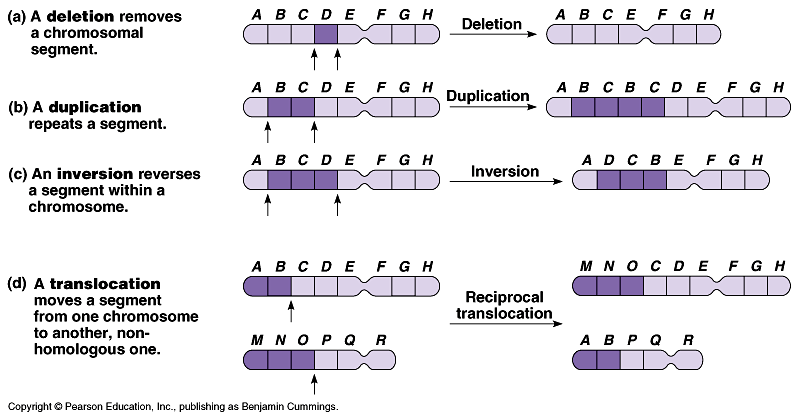There are four types of chromosomal alterations which include:
- Deletion : Broken segment is lost from a chromosome
- Duplication: Segment is broken from one chromosome and inserted to its homologue
- Translocation: Broken segment is attached to different, nonhomologous chromosome
- Inversion: Broken segment reattached to the same chromosome from which it was lost but order of gene is reversed
NUMBERS OF CHROMOSOMES CAN CHANGE
Whole single chromosomes are lost or gained from cells entering or undergoing meiosis which results in the change in chromosome number. These changes arise from nondisjunction. NONDISJUNCTION is the failure of homologous pairs to separate during the first mitotic division or through misdivision which is the failure of chromatids to separate during second meiotic division.
RESULT: PRODUCTS OF MEIOSIS LACK ONE OR MORE CHROMOSOMES OR CONTAIN EXTRA COPIES OF THE CHROMOSOME
Fertilization by such gametes produces an individual with extra or missing chromosomes. These individuals are called ANEUPLOIDS. Individuals with normal set of chromosomes are called EUPLOIDS. Individuals who receive one or more copies of the entire haploid complement of chromosomes are called POLYPLOIDS. - Triploids = 3 copies of each chromosome than usual 2
- Tetraploids = 4 copies of each chromosome


No comments:
Post a Comment